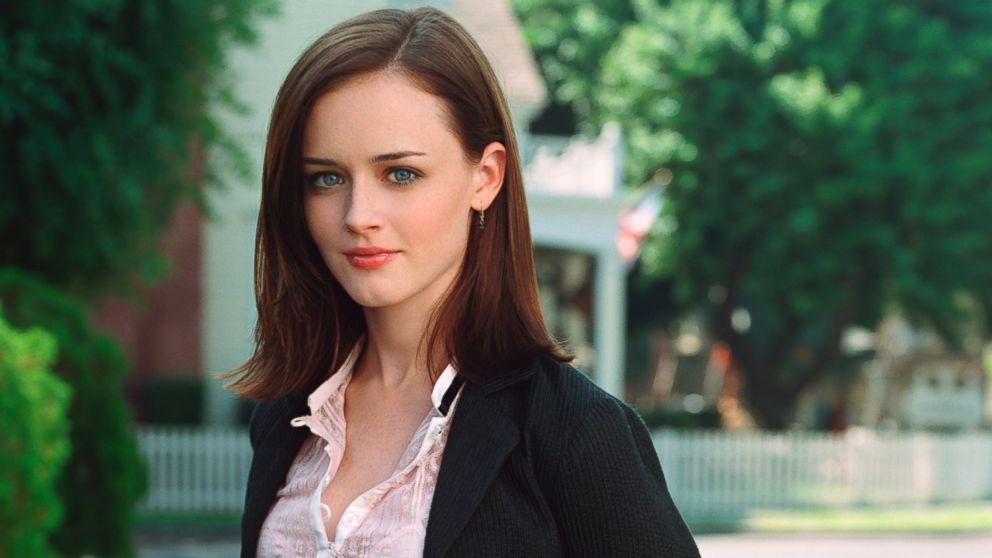
The day of its release, I sat down with my partner and we watched the entirety of Gilmore Girls: A Year In the Life. I’d been looking forward to it ever since the rumors started; we’d been rewatching the series on Netflix so that we wouldn’t forget any details going in. Years ago, when people asked me my favorite show, my response was always Gilmore Girls. Post-revival, I feel… let down. From what I can tell, I’m not the only one with mixed feelings about the four-episode revival. My Twitter feed has been rife with debate about events of the series, the final four words especially.
Personally, I haven’t stopped thinking about the final four words — or more accurately, the final two — since we finished the show late Friday night. I could go at this piece from a lot of angles, because I have a lot of feelings about how the show ended and what it means in several different contexts.
The one I’m going to focus on, because it bothers me most, is how disappointing it is to watch a character you admire — a character you aspire to be like — fall into such a messy situation.
My mom was just sixteen when her parents kicked her out for getting pregnant with me. Unlike Lorelai, she didn’t have wealthy parents who were willing to support her and give my dad a job to help them start family life when they were still just kids themselves. She didn’t run away to raise me in a quaint small town in Connecticut. She moved in with my paternal grandparents and I was raised by all of them, which was complicated in ways that I’m still trying to parse as an adult.
When I was thirteen and first started watching Gilmore Girls — on DVD, because I needed to catch up to the current season — I instantly connected with Rory. Here was this girl who was raised by her young, cool mom, who threw herself into books and school work to get ahead and get out of her small town. “I can relate to this girl,” I thought.
It wasn’t the first time I’d related to a television character, but it was the first time that I felt like I was truly similar to a television character. I even had ambitions to go to college for writing. Honestly, Gilmore Girls is part of the reason I applied to journalism programs in undergrad. I won’t say that I aspired to be just like Rory — her privilege always bothered me and her latter-season decisions, especially regarding men, were less than inspiring — but I looked at her as someone I could not only relate to, but could stand to be more like.
At the end of season seven, when Rory got a job covering Obama’s campaign for an online start-up, I was thrilled for her. She’d turned down a proposal from a rich snob and was pursuing her dream of political journalism. The series finale aired when I was a junior in high school. I went into my senior year with every intention of applying for at least five university writing and journalism programs with the wind of Rory Gilmore’s success at my back.
I graduated summa cum laude with a degree in journalism, philosophy and women’s studies in 2012. Then, when I was unable to find a steady, well-paying job in my field of study that didn’t require three years of experience (a loop that has never made sense to me), I aggressively pursued online blogging and freelance work while developing a full-time retail career. Currently, I’m a full-time barista with ambitions to go to graduate school and a number of blog bylines under my belt. I won’t say that I’ve been unsuccessful, because I don’t feel that way. I’ve worked my butt off to make a decent living and most days, I’m content with where I’m at.
But I can’t ever fathom being so unprofessional and messy as Rory Gilmore was for the duration of A Year In the Life.
(Spoilers ahead!)

Setting aside Rory’s romantic decisions (which are not okay, on any level, ever), the idea that a 32 year-old woman who was once the executive editor of The Yale Daily News, who once interviewed for an internship with The New York Times, hasn’t done anything more successful than publish one piece in The New Yorker is hard to swallow. What’s harder to swallow is that she is apparently more concerned with her personal life than she is with her career, something she spent seven seasons of “Gilmore Girls” aggressively pursuing.
Rory is supposedly freelancing when we meet up with her in the revival, but she isn’t good at it. She’s disorganized, for one — no one needs three cell phones in 2016, no matter where their mom lives (and you can’t tell me that a town half an hour away from Hartford doesn’t have any reception, seriously — as a journalist living across from a literal bog in New Hampshire, I still got service) — and she’s too elitist to take an interview at an Internet magazine seriously. Why? Because she’s Rory Gilmore. This magazine has been courting her. She doesn’t have to come prepared to the interview.
No.
We see her drop lines about The New Yorker piece repeatedly, as if this is her golden ticket to a successful career in journalism, and everyone constantly reminds her that she is 32 years old and she shouldn’t be floundering like she is. But she doesn’t act like someone whose bylines stand on their own merit and she certainly doesn’t act like someone who’s 32 years old.
As a reminder, we first meet Lorelai in the pilot when she’s 32. She has a 16 year-old daughter, a solid managerial position at the Independence Inn, and is only sucking up her pride to ask her parents for a loan to get Rory into private school. As much as we want to talk about how Rory is always meant to repeat her mother’s worst mistakes, let it be known that Lorelai at this age was a hell of a lot more put together. That makes sense, given that she had been raising a child essentially on her own for sixteen years, but given that Rory was always presented as someone who had a good head on her shoulders, seeing her fall apart is weird. And painful. And awkward. Especially when you realize that Rory is now the same age Lorelai was when we first met the Gilmore girls.

The revival seems to drag Rory back to how she was pre-season seven, and I can only chalk that up to Amy Sherman-Palladino’s desire to write the ending she never got because of a contract dispute.
But listen: whether Rory crashed and burned at 22 or 32, seeing her end up with no career and pregnant by a married man is… painful.
What happened to the Rory Gilmore I admired as a teen? Where did she go? Why did the writers rip apart her character and give me a messy monster in her place?
There’s nothing wrong with being a single mom. I have an incredible amount of respect for single moms; they’re basically superheroes, as far as I’m concerned. Rory getting pregnant at 32 isn’t bad. But the writing on Gilmore Girls seems to utilize pregnancy as the ultimate punishment for ambitious women, which is not cool. Look at Lane. Look at Paris. And now, look at Rory.
Prior to coming out as a lesbian, a question I always had to field from family and longtime friends of the family was, “So, are you pregnant yet?” (Not that I can’t get pregnant now, but I digress.) There’s an expectation that women born of teenage pregnancies will always follow in their mother’s footsteps. It’s a ridiculous idea, one that stereotypes and harms not only teen moms, but their kids. The idea that we all become our parents is really gross, but it’s the foundation of A Year in the Life. Again, look at Lane. Look at Paris. The writers have unapologetically and intentionally turned these women into their mothers — women they actively chafed against throughout the original series — and when the series ends, we see that they’ve done the same to Rory.
I’ve read a lot of think pieces about Rory and her arc in the revival since it hit Netflix. All of them have struck a chord with me because all of them have reinforced my extreme disappointment with the revival.
Furthermore, they’ve helped me recognize my hurt.
On the one hand, I felt the same sense of connection with Rory that I did as a teenager when I realized she was struggling to make a living as a journalist. Me too, girl. I lived at home for a while after graduation and it’s taken me a while to get my act together.
But the more I watched, the more I realized that our problems, post-college, were very different. Rory had all the connections, all the right lines on her resume, all the potential to fly off and become the foreign correspondent she always wanted to be. She just… didn’t. She got too wrapped up in her elitism and her personal crises and let her journalism career slip through her fingers.
As someone who once aspired to be more like Rory, watching the revival was difficult in ways I never could have predicted. Like anyone, I was incredibly invested in finding out which of Rory’s Boys would be endgame. I never thought she would end up alone and pregnant after actively cheating on her boyfriend with someone she once dumped so she could pursue her career.
Was I shocked by the final four words? Absolutely. More than that, I was shocked to watch a character I’d loved and defended so fiercely in my formative years transform into someone I could no longer defend. I’m not sure I can forgive this transformation or the writing that brought it about. And that sucks, because the return of Gilmore Girls was one of the only potentially good things that 2016 still had going for it.




2 thoughts on “Revival Rory Failed Herself”